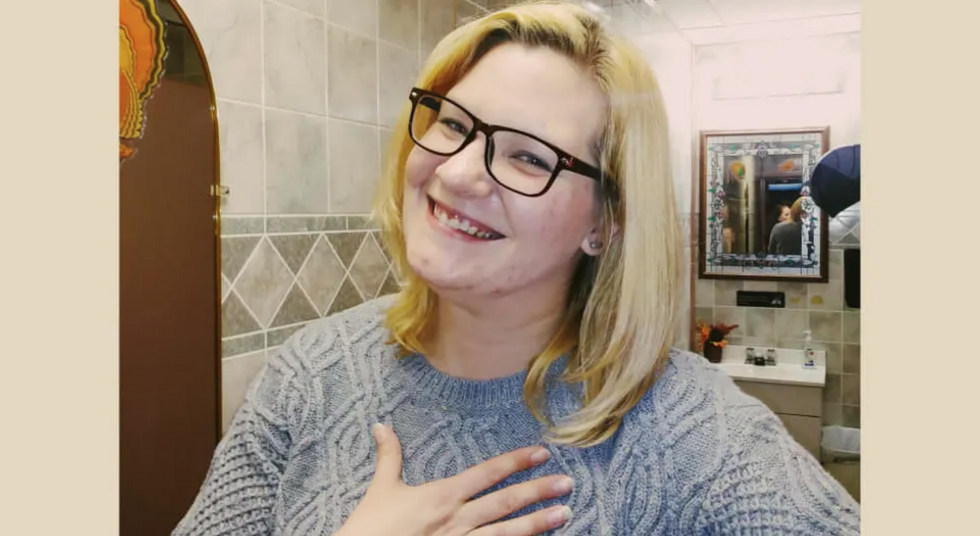When I first heard about COVID-19, it was just a flu-strained virus. Now, it's incredibly deadly. Everywhere you go is a ghost town. Going to work is as scary as walking around. Almost every essential business is making extreme procedures that we have to follow in order to assure our safety. Every day, I fear that I may come home from work and find out that someone in my family has the virus. I was never afraid of getting sick before, but times are different now.
I reached out to a family member working in a nursing home about COVID-19, curious about her perspective and thoughts. I learned so much. Here is my conversation with Stef Worhach, a nurse in Coal Township, Pennsylvania.
Recommended for you
How long have you been a nurse?
It will be three years in June 2020. Before becoming a nurse I was a CNA for four years.
What department do you work in?
I work in long term care (LTC) at a nursing home.
What is the nursing home's procedure regarding COVID-19 patient care?
We, fortunately, do not have any positive cases of COVID-19 in our facility, but all new admissions are placed in quarantine for 14 days after they arrive. We monitor them for any signs or symptoms of COVID-19. If they remain symptom-free for those 14 days, they are brought out of quarantine.
Our dialysis patients who leave the facility three times a week are also placed in quarantine because we do not know what exposure they have while out of our facility.
Any current resident that shows any signs or symptoms of COVID-19 is placed in quarantine. They remain in quarantine until either their COVID-19 test comes back negative (if they had enough symptoms to qualify for testing), or until they are symptom-free for seven days. Our residents' families are not permitted to visit inside the building — they visit their loved ones through the window. Anyone entering the building (staff, pharmacy, X-ray) must enter through the front door, have their temperature taken, fill out a questionnaire, and sign in. They must exit through the front door, have their temperature taken again, and sign out.
What is the protocol if you (or another nurse) show signs of infection?
If a nurse shows signs or symptoms of COVID-19, they are sent home immediately. They would not be permitted to return to work until they are symptom-free for at least seven days, or until their COVID test comes back negative and they are symptom-free.
Do you have enough PPE?
All staff was issued a surgical mask and a paper bag. We are required to wear a mask at all times. We reuse the surgical mask and store it in the paper bag when it's not in use (when we are off shift or utilizing a different mask like a homemade mask or N-95). When the surgical mask is damaged or soiled, we replace it. Nurses and other staff working in the quarantined areas are also given N-95 masks, face shields, head coverings, and gowns. We need to keep track of how long we wear the N-95 mask — after eight hours of use, we need to replace it. The face shield, head covering, and gowns are reused until visibly soiled or damaged and then replaced. If we were to replace these items after each use we definitely would not have enough PPE. By sanitizing and reusing, hopefully, we have enough to last. I wish we could replace it after each use. But we have enough gloves — they are still changed when soiled and between residents.
What is the biggest change your day-to-day has faced because of COVID-19?
The biggest changes are entering through the front of the building, reusing PPE, and no visitors. Our residents and co-workers have already become like family to many of us, but now we may be the only human contact they have in our eight, twelve, or sixteen-hour shift. We try to reassure our residents that their family isn't visiting because of what is going on. Some understand, but sadly, many do not.
While reusing PPE and caring for quarantined or symptomatic residents, now there is the worry I might take something home to my family. So while I was always careful when getting home after work to not wear my scrubs in the house other than right to the bathroom to change, now I need to be even more cautious not to touch anything. Even though I wash my hands before leaving work, anything I touch when I get home now gets cleaned extra carefully, my scrubs go right into the washer, and the bottom of my shoes get bleached — and I shower. It's just hard to explain the difference. It's much more tedious.
Describe the nursing home's atmosphere.
We try to stay positive and upbeat and try to work as a team. But sometimes the atmosphere can get very stressful, especially now with the extra precautions put in place. Having co-workers you can work with as a team helps ease the stress though, and we can usually help each other stay grounded.
How do you feel about the national news coverage of COVID-19? Accurate? Downplaying the situation?
I honestly don't watch a lot of news. While I do think it's very important for people to know what is going on and any new developments, I don't think causing mass panic will benefit anyone. Initially, our number of positive cases was lower. Then that number started to increase as more tests became available and more people were tested — of course that is going to happen! I know it's important for us to know, I just wish we would see more positives on the news also, more recovery statistics.
What is one thing you wish you could tell the country about COVID-19?
I wish I could make people understand that the masks we are wearing in public might not be the "right masks," but we are wearing them to protect others. You could be positive for COVID-19 but not have any symptoms and just might not know you're positive. If both parties are wearing masks, the effectiveness is increased.
While you may be young and healthy and able to recover or show no symptoms, your grandparent, neighbor, or the immunocompromised lady in the grocery store may not be so lucky. This is why these guidelines were put in place, and we need to follow them.
How has your personal life been impacted by COVID-19?
I have three kids — one is 13, and I have 11-year-old twins. They can't go to school now, and I am now their teacher as well as their mom, and I still need to work. Life is a little crazier now. The only places I go are work, grocery shopping, and home. I can't visit my friends and their families. I can't even visit with my mom, who is 71 and has underlying health issues.
What advice can you give us for staying as healthy as possible?
Honestly, just follow the guidelines. Practice social distancing, stay home unless you need something, and even then only one person should go to the store, not the whole family — and WASH YOUR HANDS! Not only now, but always wash your hands. Hand washing is the most effective way to not spread germs and infection.
What can citizens in your area do to help healthcare workers fight COVID-19?
Follow the guidelines and keep yourselves healthy. The fewer people who are sick and the fewer people who end up in the hospital will lessen the chance for COVID-19 to be spread to the healthcare staff.



















